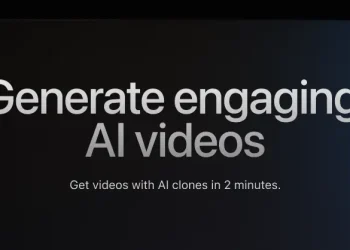In November 2021, all 193 UNESCO member states agreed on AI ethics globally. This shows how important AI ethics and rules are today. As AI touches more parts of our lives, like job searches and safety, we need strong ethical rules.
AI ethics are more than just following rules. They are about the moral guidelines for using AI. These rules help make AI fair, clear, and responsible. It’s key to use AI’s benefits while avoiding problems like bias and privacy issues.
This guide will look at how we can make AI ethical. We’ll see the important role of different people in this effort. We’ll also talk about how to follow ethical AI rules in different areas.
Key Takeaways
- UNESCO adopted a global agreement on AI ethics highlighting worldwide support.
- AI ethics encompass not only compliance but also moral principles to foster accountability.
- Regulatory frameworks are emerging globally to govern the ethical use of AI technologies.
- Role of stakeholders is crucial in the development and enforcement of ethical AI guidelines.
- Transparency and fairness are key elements in safeguarding against bias and discrimination.
Understanding AI Ethics
AI ethics is about moral rules for making and using artificial intelligence right. It’s key to avoid biases and discrimination in AI projects. This ensures AI respects privacy and makes fair decisions.
Definition and Importance of AI Ethics
AI ethics sets the rules for using AI. It focuses on values like fairness, transparency, and being accountable. This helps avoid biases and makes AI decisions fair across industries.
Regular checks, diverse teams, and clear rules are important for ethical AI. They help set high standards for AI.
The Role of Stakeholders in AI Ethics
Many groups help shape AI ethics. These include tech companies, schools, governments, and non-profits. Each brings their own ideas to solve AI ethics challenges.
For example, the UNESCO agreement on AI ethics shows how groups work together. This helps make AI more accountable and open. By working together, we can handle AI’s ethical issues better.

AI Ethics and Regulations: The Current Landscape
The AI regulatory landscape is filled with efforts to make AI responsible. The Bletchley Declaration, backed by 29 countries, aims to set ethical AI standards. Governments and groups are creating rules that consider AI’s ethical sides and aim for global consistency.
UNESCO’s AI ethics guidelines aim for a global framework. But, society is split on AI’s impact. Issues like privacy, surveillance, and bias make it hard to set strong global AI regulations.
Generative AI’s fast growth highlights the need for strong ethical rules. Jobs replaced by AI add to the pressure for responsible innovation. Companies must act by adopting ethical AI rules and building diverse teams. It’s key to use tools that find and fix biases for an equal AI future.
In 2023, the European Union’s Artificial Intelligence Act came out, focusing on transparency and accountability. Big tech companies like Google, Microsoft, and IBM also set their own AI guidelines. These focus on fairness and ethical AI making. Research is being done to better detect and fix biases, showing the industry’s commitment to ethics.

More people are getting involved in AI ethics, showing a big change in how we see AI. The need for global teamwork and teaching people about AI ethics is growing. Finding a balance between new tech and ethical use is a big challenge in the AI world.
| Initiative | Scope | Key Focus Areas |
|---|---|---|
| Bletchley Declaration | International | Responsible AI development standards |
| UNESCO Recommendations | Global | Cohesive framework for AI ethics |
| EU AI Act | Regional (Europe) | Transparency, accountability, bias |
| Tech Giants Guidelines | Corporate | Fairness, transparency, ethical practices |
Ethical Considerations in AI Development
As AI grows, focusing on ethics in AI development is key. This ensures AI systems are made and used in ways that are fair and respect privacy. AI can greatly affect many areas, so it’s vital to think about its moral impact.
Fairness and Equity in AI Systems
For fairness in AI systems, we must check the algorithms closely. If the data is biased, the AI can be unfair, making things worse for some groups. Researchers are working hard to make AI fairer, focusing on design that puts people first. Recent efforts from U.S. agencies stress the need for AI that is open and responsible.
There’s more money going into AI ethics, with The White House giving $140 million for research and projects. This money helps make AI more open and trustworthy, which is key for its development.
Privacy and Data Governance Challenges
AI raises big privacy issues as it uses more user data. We need strong rules to protect this data and follow laws like the GDPR. Programs to help workers who lose jobs to AI are also important.
There are also worries about AI being misused, like in autonomous weapons. This means we must always watch closely to keep AI safe and ethical at every step. For more on how AI uses different types of data, check out this resource.
| Ethical Consideration | Description | Importance |
|---|---|---|
| Fairness | Ensuring no discrimination occurs based on race or gender | Promotes inclusivity and equitable outcomes |
| Privacy | Protecting user data from unauthorized access | Maintains user trust and compliance with regulations |
| Transparency | Providing clear explanations for AI decision-making processes | Enhances accountability and public trust |
| Human Oversight | Integrating human judgment into AI operations | Ensures alignment with human values and ethics |
Regulatory Framework for AI
Artificial intelligence is changing fast, which means we need strong rules for it. These rules should cover both national and international standards. Countries like the European Union, the United States, and China are leading the way in making these rules. They want to make sure AI matches up with our civil rights and democratic values.
National and International Guidelines
President Biden’s team sees AI as a way to tackle unfairness. They have created an AI Bill of Rights with five key principles. These principles aim to guide national AI rules. They focus on safety and making sure AI respects our rights.
- Safe and Effective Systems: Making AI safe means testing it well and following safety rules.
- Algorithmic Discrimination Protections: This rule stops AI from unfairly treating people based on things like race or gender. It calls for checks to make sure AI is fair.
- Data Privacy: It’s important to get people’s okay before using their data. Designing AI with privacy in mind helps people control their data.
- Notice and Explanation: It’s key to tell people how AI systems work to build trust.
- Human Alternatives, Consideration, and Fallback: People should always have options when dealing with AI systems.
Case Studies: Countries Leading in AI Regulation
The European AI Act is a big step forward, creating the first global AI rules. It puts AI into four risk levels and has tough rules for high-risk ones like facial recognition. High-risk AI must pass strict checks before it can be used.
The European AI Office will make sure these rules are followed. The EU is also investing in AI startups and small businesses to help them make trustworthy AI. This shows how important it is to follow AI rules.
Artificial Intelligence Compliance
Artificial intelligence compliance is key to making sure AI follows ethical rules and laws. Companies are now making sure their AI matches AI regulation standards. This helps them deal with the complex rules of compliance.
Leaders in the industry say it’s important to check if AI is used ethically. Dion Hinchcliffe notes that top companies have ways to watch and check their AI. This keeps them in line with ethical rules from start to finish. Without these checks, companies could face big problems like biased algorithms and privacy issues.
Anthony McMahon says every decision on data use must think about ethics. Keeping data safe is crucial, especially when data connects in new ways. Good rules should cover risk checks, policies, and watching how things perform to tackle these problems.
AI’s growing complexity means we need special officers for compliance. They make sure AI follows artificial intelligence compliance rules. Analysts say giving someone the job of overseeing AI helps keep it under human control.
With changing rules, companies face many compliance issues. These include unauthorized data use, leaking personal info, and bad effects by mistake. Companies must take steps to prevent these problems. Leaders suggest being aware of the ethical risks of AI.
AI ethics and compliance are key to a strong operation. There’s a big need for experts in these areas. This is because of more interest in responsible AI and the need to meet legal standards. With a strong base in AI ethics and compliance, companies can improve their image. They can also make sure their AI builds trust and accountability.
Ethical AI Guidelines for Developers
Developers need to follow ethical AI guidelines to make responsible AI systems. These guidelines help ensure AI meets societal expectations and ethical standards. By following best practices, organizations can build trustworthy AI that users trust and find reliable.
Best Practices for Ethical AI Implementation
Developers should follow these best practices for ethical AI:
- Conduct regular bias audits to find and fix potential discrimination in AI algorithms.
- Work with a diverse group of people during AI development to include different views.
- Explain how AI systems work to users to improve understanding.
- Set up feedback systems so users can report problems and make suggestions.
- Give training and education to people on how to use AI responsibly and understand its effects.
The Importance of Transparency in AI Systems
Transparency is key to building trust between developers and users. When AI systems are open about how they work, it makes everyone accountable. This means explaining how data is used and how decisions are made, which helps prevent confusion and builds trust in AI.
By being clear and open, developers can create a culture of ethical decision-making. This means always thinking about the effects of AI technologies.
| Best Practices | Description |
|---|---|
| Regular Bias Audits | Identify and address biases in AI algorithms to ensure fairness. |
| Diverse Stakeholder Engagement | Involve a variety of perspectives in the AI development process. |
| Documentation and Explanation | Provide clear information about AI functionalities to users. |
| Feedback Mechanisms | Enable users to report problems and suggest improvements. |
| Training and Education | Educate stakeholders on responsible AI usage and impacts. |
AI Governance Principles
AI governance principles are key for using artificial intelligence responsibly. They help organizations make governance frameworks for AI that follow ethical standards and are accountable. The General Data Protection Regulation (GDPR), the OECD AI Principles, and Corporate AI Ethics Boards are examples of these frameworks. Over 40 countries have adopted the OECD AI Principles, showing a global commitment to ethical AI.
Having a strong governance structure is crucial for keeping humans in charge of AI decisions. The CEO, senior leaders, legal teams, and audit functions are usually in charge of following AI governance principles. Companies like IBM have set up AI Ethics Councils to oversee their AI work.
A recent executive order from the White House focuses on AI safety and security. It requires organizations to share safety test results with the U.S. government. The order also prioritizes privacy, fairness, and civil rights in AI policies while supporting innovation and competition.
Some key principles include:
- Fairness and equity
- Security and safety
- Robustness and reliability
- Human-centricity
- Privacy and data governance
- Accountability
- Integrity
Organizations should create their own standards and guidelines for AI systems. They need to figure out how to assess risks and decide on human involvement in AI decisions. Good communication helps with stakeholder trust and interaction around AI.
| Governance Framework | Description |
|---|---|
| GDPR | Regulates data protection and privacy across the EU, impacting AI usage by ensuring user consent and data rights. |
| OECD AI Principles | A set of recommendations for responsible AI development and use, focusing on promoting innovation while ensuring user safety. |
| Corporate AI Ethics Boards | Internal teams responsible for overseeing ethical considerations in AI projects, ensuring compliance with established governance principles. |
By putting these AI governance principles into action, organizations can support ethical AI use. This helps make a positive impact on society.
Building Trust in AI: Accountability and Integrity
Trust is key for AI systems to work well in different fields. Making sure accountability in AI is important for them to work for everyone. Companies need to value ethical decision-making in AI at every level. They should be clear about how AI works, why it makes decisions, and what data it uses.
Creating a Culture of Ethical Decision-Making
To put ethical decision-making in AI in a company, you need commitment and teaching. Companies should teach people about the ethical sides of AI. Programs that teach can help people understand AI better and fight wrong info about it. This helps people work together, which is key for trust in AI.
The Role of Ethics Committees in Organizations
Ethics committees are very important for keeping AI use right and safe. They look for and solve ethical problems early. This protects the company and builds trust. Ethics committees make sure AI is accountable, which helps people see AI in a good light.
Strong laws can make it clear who is responsible for AI’s actions. These laws make AI more accountable, which is key to avoid security risks. Working together can lead to rules that make AI better and more trusted worldwide. Companies that follow these ideas can handle AI’s fast changes well. For more on using AI in marketing and making it accountable, check out this link.
Challenges in Enforcing AI Regulations
The world of artificial intelligence is always changing, bringing new challenges in AI regulations. We see issues like bias in AI and cybersecurity threats that need careful look. To make good rules, we must understand the risks AI brings to areas like criminal justice and finance.
Bias and Discrimination in AI Technologies
Dealing with bias in AI is a big challenge. Past examples show how AI can copy old prejudices, leading to unfair results. For example, Amazon’s AI hiring tool was biased against women applying for jobs. This shows we need rules that make AI fair and equal.
AI’s bias problems are different from human mistakes. So, we need special solutions for these issues.
Cybersecurity and Data Breaches Risks
Cybersecurity in AI is also a big worry. AI uses a lot of data, making it more likely for data breaches and cyber threats. These risks are high because AI can make big mistakes with lots of data.
AI’s big changes mean we must focus on keeping it safe. Companies are under more pressure to be open, so strong cybersecurity is key to protect everyone.
Conclusion
AI ethics and regulations are key to handling the risks of AI technologies. The term AI was first used in 1955 by pioneers like John McCarthy and Marvin L. Minsky. They linked AI’s growth with ethical thoughts from the start.
Today, AI systems are being checked for their ethical sides, especially in machine learning. Experts like Vincent Müller and Rosalind Picard say we need stronger moral rules as machines do more on their own. They point out the need for careful thought in AI ethics, where simple answers don’t always work.
AI is becoming a big part of our lives, so we must work together to make it ethical. The talks on AI ethics show we know it’s important to balance the good and bad sides of AI. By making ethical choices and being accountable, we can make AI better and more responsible.
FAQ
What are AI ethics and regulations?
AI ethics and regulations are about the rules for making and using artificial intelligence. They aim to make sure AI is fair, clear, and responsible. They also try to prevent issues like bias and privacy problems.
Why is AI ethics important?
AI ethics is key for using AI right. It helps avoid problems like bias and privacy issues. This makes technology more fair and trustworthy for everyone.
Who are the key stakeholders in AI ethics?
Important people in AI ethics include experts, tech companies, governments, and non-profits. They all have different views and help make rules like the UNESCO agreement on AI ethics.
What is the current landscape of AI ethics and regulations?
Now, many countries have their own AI rules. Some tech companies also have their own ethics rules. But, there’s no one standard, which makes it hard to keep things consistent.
What are the ethical considerations in AI development?
In AI development, we think about fairness, equality, and privacy. Developers must make sure their algorithms don’t show bias. They also need to protect user data and follow ethical guidelines.
How do different countries approach AI regulations?
Countries like the EU, China, and the USA have their own AI rules. These rules focus on ethics. They show what works and what doesn’t, helping other countries make their own rules.
What does artificial intelligence compliance entail?
Being compliant with AI means following rules and ethical guidelines for AI. It makes sure AI is made and used right, following ethical standards.
What best practices should developers follow for ethical AI implementation?
Developers should check for bias, be open about how AI makes decisions, and share AI details with others. These steps build trust and encourage ethical choices in companies.
What are AI governance principles?
AI governance principles are rules for using AI responsibly. They focus on being accountable, putting people first, and having strong rules. Companies need to make sure humans are in charge of AI decisions.
How can organizations build trust in their AI systems?
Companies can gain trust by valuing ethical decisions and having ethics teams watch over AI use. These teams make sure AI is honest and trustworthy, which builds trust with users.
What challenges exist in enforcing AI regulations?
Enforcing AI rules is hard because of bias and discrimination in AI and cybersecurity risks like data breaches. These issues make it tough to set clear rules for AI.




